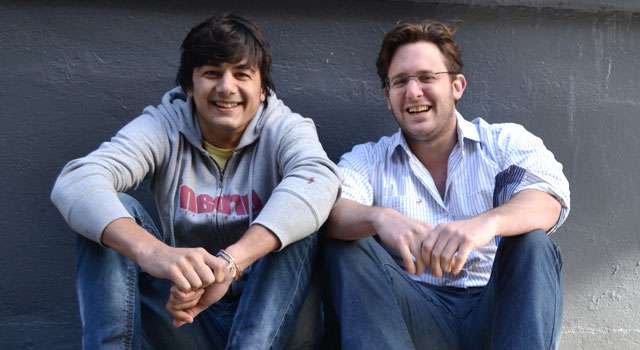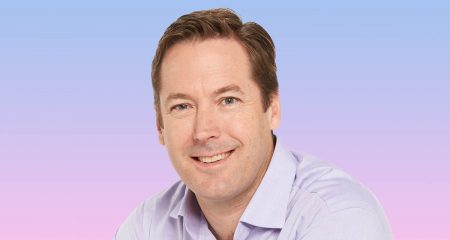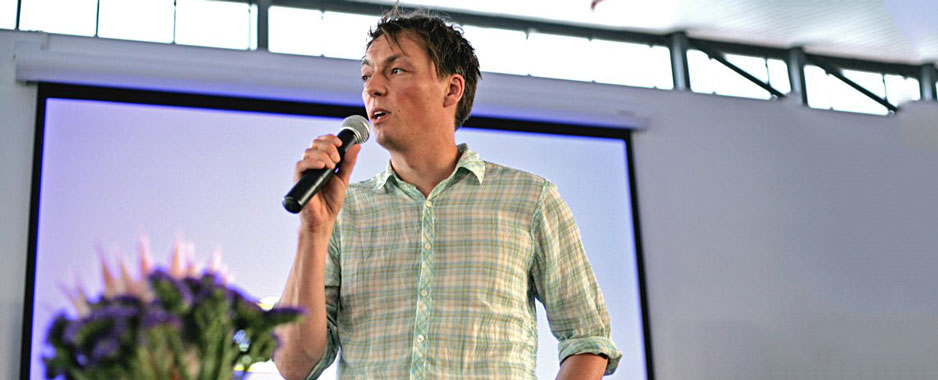
When Andrew Lynch and Kiril Dobrev, both 26, finished their studies last year, they realised professional life made it far more difficult to meet new people than student life. So, they started Weaver, a service that pairs a group of three friends with another group in the hope that new friendships will blossom.
Weaver grew out of another business, CableKiosk, that Lynch started while studying international relations at Rhodes University in the Eastern Cape. CableKiosk is an online store for all manner of computing and AV cables, prompted by Lynch’s frustration at local pricing for the accessories.
“CableKiosk was picked up by [start-up incubator] 88mph last year in February,” Lynch tells TechCentral. “It’s still running and, because it’s an e-commerce service, there’s low maintenance, it’s easy to streamline and, more importantly, it actually delivers revenue.”
Lynch still has office space at 88mph, though his focus has shifted to Weaver. The website went live a month ago, with promotion set to start from next week. Lynch and Dobrev built Weaver themselves, with the former doing the bulk of the coding.
“When I finished at Rhodes, I moved to Cape Town. Making the transition from student to professional life, I realised it was difficult to meet people,” Lynch explains. “The options seem to be to join a sports club or sign up to an online dating site.”
Neither of these was ideal as Lynch didn’t want the commitment that joining a club would require and wasn’t looking for a romantic interest. He says online dating is “stigmatised”, especially in South Africa, and he wanted to offer a service for people looking to make friends rather than trying to find a date.
Inspiration came from services like Ignighter (recently rebranded as StepOut), an Indian start-up that helps people arrange group dates, and from a range of dating sites.
“We didn’t want people to have to create an online profile like those on dating sites, which are all about finding ‘the one’,” Lynch says.
Instead, users sign into Weaver using their Facebook credentials. “It’s mandatory to connect with Facebook because it keeps it simple and provides us with access to some basic information like age and interest.”
Users are asked to enter a small amount of basic information, including what sorts of places and activities they enjoy. This information is used to match separate groups of three friends with one another.
Weaver charges R79/head to arrange for the groups to meet, makes a booking at a suitable bar or restaurant, and uses a portion of the fee to pay in advance for the first round of drinks.
“The service has to be cool for people to use it, so we’re partnering with venues that we like,” says Lynch. This also removes the potential awkwardness of meeting people you don’t know somewhere you don’t know and offers a degree of security and a sense of the venue having been vetted.
For now, the service is limited to matching two groups of three people, but this may change. “We’re keeping it simple for now,” Lynch says, adding that Weaver will look at the feedback it gets and take this into consideration as the service evolves.
The get-togethers are referred to as “weavers” in order to avoid the potentially off-putting connotations that “group dating” may imply.
“We don’t like the term ‘dating’, and ‘group dating’ scares people off. We wanted a term that encompassed coming together.”
Another advantage of the R79/head fee, according to Lynch, is that it tends to ensure all parties show up.
But what happens if the two groups don’t get on? “Even in the worst case scenario where you don’t really get on, you’ve still shared a drink with friends and can laugh about it with them afterwards.”
Lynch says one of the big advantages he and Dobrev have over other start-ups is the fact that they do everything themselves and can change course very quickly.
“We can do everything really quickly, so we can fail very quickly,” he says. “As a team, if we fail, it’s not going to cost us the world. Also, we’re renting space from 88mph until the end of the year and being in that office means having 40 ‘test customers’ before we even walk out the door.”
Weaver is focusing on Johannesburg and Cape Town first but plans to expand this to Durban and Pretoria soon. Its target market is young professionals aged 22 to 30, though Lynch says they’ve had the odd sign-up from people outside that range.
What about expanding the service to loners, or people who have moved to a city and haven’t got two other friends to bring to a Weaver? Lynch laughs and says the company had toyed with a “request-a-wingman” option, but is sticking to the formula of three and three for now. “It’s a good dynamic that seems to work well with people,” he says. — (c) 2013 NewsCentral Media




